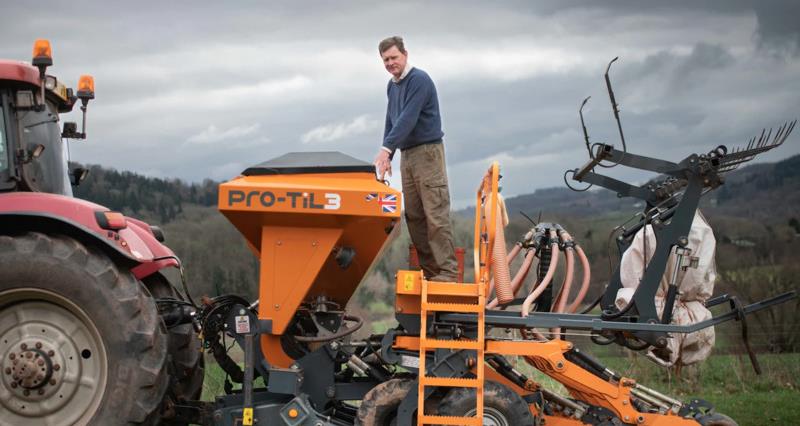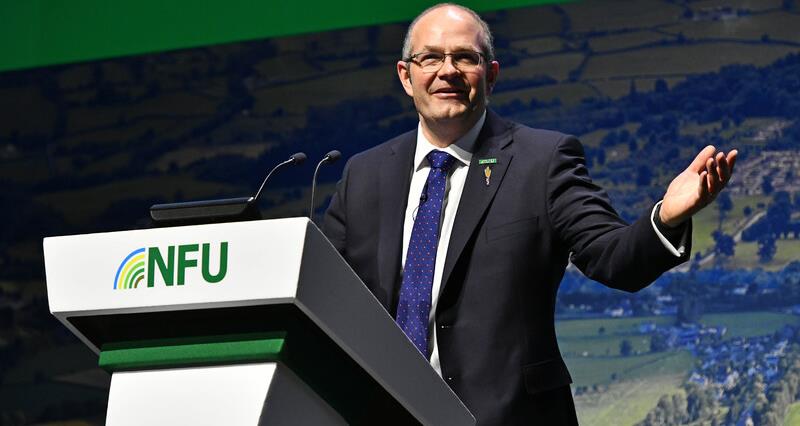My wife Gina and I farm around 900 acres; one third of which is livestock on grassland and the remaining two thirds are combinable crops and potatoes in a six-year rotation with at least two catch/cover crops included.
As tenant farmers we live off our ability to farm, not off property assets, so efficiency and return from inputs drives our thinking.
Investing in a strip drill
We have a mixture of intensive crops and extensive grassland including wildflower meadows, winter bird seed crops, buffer strips against all water courses and many woodlands.
“We cut not only our costs but our inputs, helping us to produce protein from forage in a carbon friendly way."
NFU Herefordshire County Chair Bill Quan
Saving money is very important and that is why we purchased a new seed drill under the Herefordshire Council Leader grant funding. It allows fewer passes over the soil, to reduce compaction, and improving timeliness and speed of planting. This was also good to reduce soil erosion and release of carbon.
We are now in our fourth season; at first, we found our yields dipped but have risen from year two onwards. Crucially, our soil conditions, organic matter and worm volumes are substantially better. The big savings are in fuel and metal usage.
Focusing on grass
Using grass and cover crops in the arable rotation has added to this. We use a variety of pasture from ancient wildflower meadows, mixed species herbal leys and the latest hybrid grass lay mixes.
On our grass, we use livestock breeds that are generally smaller in stature who can thrive off a pasture-based system, reducing the need for hot grain concentrate feeding. We cut not only our costs but our inputs, helping us to produce protein from forage in a carbon friendly way. Easily managed livestock, particularly in regard to outdoor lambing and easy calving cattle, is also vital in managing extensive grassland as well as driving down labour requirements.
Switching to solar
We have just invested in solar panel powered electric fencing which saves money, is easier to operate and is good for the planet.
Ultimately, we have found that a mixture of arable and livestock really helps us in delivering soil health and organic matter. This, alongside strip drill tillage and making use of windows between crops for cover crops, is important in reducing soil run off and carbon escape.
For the NFU 2040 Net Zero Ambition, we all have to start somewhere. We started with the NFU pledge, learning from other farmers and industry experts, and we hope to be doing our little bit. Necessity is the master of invention and lack of cash generally drives innovative thinking!
Improve your business resilience
Many of the climate-friendly actions that Bill has taken to improve his GHG (greenhouse gas) footprint and business resilience can be found in the NFU Sector Resilience Plans.
Climate-friendly farming is good for business; it can help members achieve better market access, cost reductions, business resilience and consumer approval, alongside reducing greenhouse gas emissions.
The resilience plans set out in one place what could be achieved based on what we are asking the government to do for farmers and growers.
Each sector is defining its own priorities, highlighting the member benefits and associated challenges, alongside the support needed from the government, industry and research and development in order to increase uptake of climate-friendly farming.

